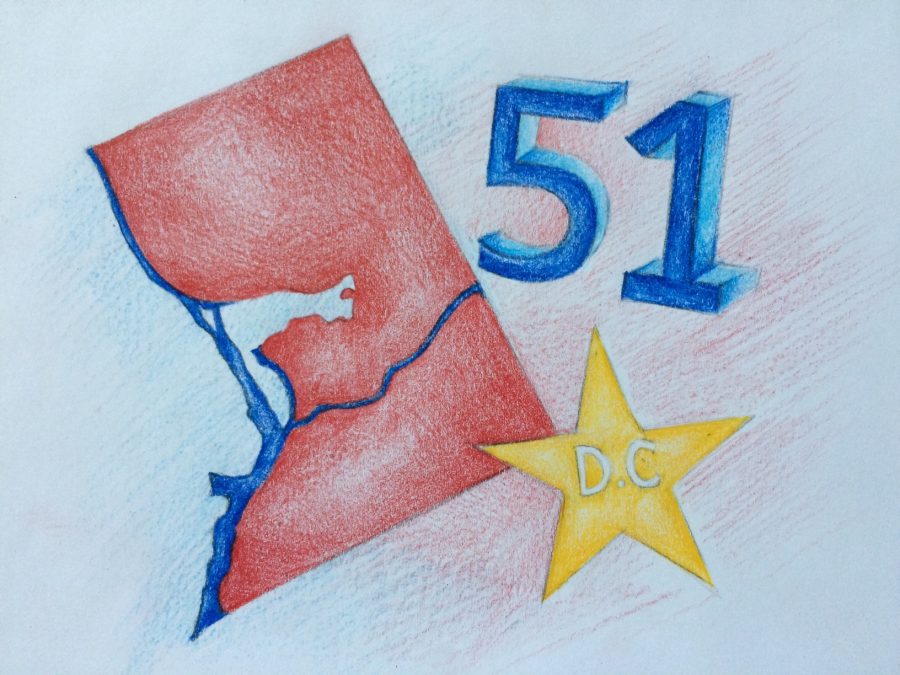America’s Fate with a 51st State
April 7, 2017
Among the fifty shining stars, the prospect of Washington D.C.’s statehood dims in comparison.
Rep. Eleanor Norton of D.C., however, successfully introduced a new bill in March to convert the movement into legislation. The bill attracted several co-sponsors and continues to gain traction on the floor. The push for D.C.’s statehood tests how the public perceives democracy: does an attempt for fairer representation outweigh the nationwide practicalities? Amidst opposition, why are D.C. leaders expending energy to pursue statehood?
For nearly three centuries, the statehood movement existed as an undercurrent in the political tide. D.C.’s confined status as traditional symbol attributes to why many of its citizens feel neglected in the political process. Historically, the national government has held complete legislative jurisdiction over the capital. Two “shadow” senators and one “shadow” representative ceremonially represent Washington D.C., yet do not wield legislative power in Congress.
Although the movement has multifaceted goals, congressional representation stands as a unifying priority. Since the Constitution does not explicitly mention representation of non-state territories, D.C. cannot legally participate in federal lawmaking. Therefore, statehood would facilitate representation without the haste of the amendment process.
Proponents of statehood rally behind “no taxation without representation” because D.C. residents pay the highest taxes per capita. Statistics reveal that 85% of D.C. residents support statehood as means of gaining economic autonomy. As of now, congressional members of different states allocate the budget for D.C.’s social and infrastructure programs.
Political ideology also creates for divisive policymaking. Given that 93% of D.C. residents supported Hillary Clinton in the general election, it is evident that the city values a liberal agenda. Congress, however, consists of a strong Republican-majority with polar ideals. Many residents feel threatened by the GOP’s recent efforts to loosen city gun laws and defund Planned Parenthood programs.
Jessica Booth ‘18 echoes these concerns, stating that “D.C. residents deserve their own representation. It is a bold movement, but all Americans should feel included in the political process and have a voice in policy that directly affects their livelihood.”
Although Booth offers a non-partisan ideal of democracy, statehood is entangled with political implications. Republicans continue to oppose statehood as means of retaining a majority in Congress. If the statehood bill succeeded, the incorporation of Democratic D.C. representatives and senators could tilt the voting outcome on bills.
When considering future implications, Shreyes Manivel ‘17 reflects that “since there is stark opposition to a D.C. state within Congress, I am not sure if it is of prime importance right now to be legislated on. Nonetheless, it is a fair issue that should be discussed openly by both sides.” Manivel, among other voices, suggests that Americans address injustice holistically before tackling the issue of representation.
Viewpoints aside, the recent bill undoubtedly reached an impressive milestone when it received 116 cosponsors in the House of Representatives. Despite today’s divisive political climate, every Ridge student should feel confident that the voice of any movement will not be muted. As Americans, the nation will continue to recognize Washington D.C. as a symbol of democracy, whether as a district or a state.

